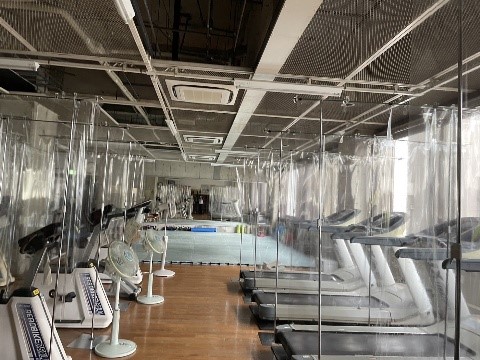I believe one of the biggest problems that inhibits our potential for success is the inability to juggle our work or research with our social life, health, and hobbies. Many people find it difficult to balance these aspects of their life and usually spend most of their time working or procrastinating.
Why is this a problem and why is it hard to correct?
Many people may feel it takes too much time and effort to maintain their wellness. This can lead to increased stress and anxiety, which may have a knock-on effect on our work performance and our long-term health.
What is the solution?
There are many ways you can improve your mental and physical health whilst researching. Some things I did included making time to exercise regularly, hanging out with friends, eating healthier, spending time in nature, and meditating. In the long run, if you make the effort to include some of these things in your life, it will improve your productivity and motivation towards your research.
Why did I decide to incorporate these things into my life?
I noticed I was becoming very stressed, anxious, and negative when I didn’t take care of my physical and mental health. This in turn meant I was not giving the best effort I could in my research, and I had a bad outlook on my life. I think this is a common problem many people face in their lives because it is easy to say we do not have time to meditate, work out, or cook healthy food, and it is easier to do the opposite. There is mounting evidence about how leading a healthy lifestyle can improve productivity (Sjøgaard et al., 2016), reduce stress, and improve mental health (Kim, 2022). Therefore, if you want to tackle the challenges you face as a research student or in your day-to-day life, investing some time in your overall health could help.
What are some simple things we can do to improve our mental and physical health?
It can seem overwhelming to make big lifestyle changes such as trying to eat better and exercise more as it might be considered time-consuming and expensive. However, these things can also be accessible, affordable, and easy to fit into your schedule with a little effort.
For example, as a Tokyo Tech student, I had free access to the gyms on each campus. It was nice to be able to use these facilities as gym memberships can be expensive, and it was convenient as I could schedule workouts around my experiments since there was a gym close to my lab. If the gym is not your cup of tea, you can also spend time in nature on the weekend. There are many beautiful places which take around 2 hours to reach by train from Tokyo. During my time as a graduate student, I have visited Mount Mitake, Mount Takao, and Okutama. These places have breathtaking nature and walks appropriate for all ability levels.








In terms of eating healthier, this can be especially costly in Japan as fruit and vegetables are more expensive compared to other countries, and preparing meals can be very time-consuming. To solve this issue, I cooked meals in bulk and stored extra portions in the freezer. This saved me a lot of time and money as a student. Additionally, premade meals (“bentos” in Japanese) can be affordable and balanced options. If you go to the supermarket later in the evening, the prices of some premade meals, fruit, and vegetables are reduced, which can also save you time and money when trying to eat healthy.
Another simple thing I did to improve my mental health was to reduce my screen time as I realised I was spending an unhealthy amount of time browsing social media. This was initially hard to do, but I replaced scrolling on my phone with reading a physical book. This really helped to reduce my anxiety and improve my concentration.
It is also vital to make new friends, especially as an international student. Living abroad can be isolating as you are far away from your friends and family in your home country. In the beginning I did not make much effort to find friends as I am more of an introverted person. Because of this, I was often homesick and felt alone. I decided to join some local groups on Facebook which aligned with my interests and attended some events held by the Tokyo Tech International Students Association (TISA). This made it easier to connect with fellow international students in the same situation as me. As a result, I did not feel as homesick or lonely, and it allowed me to blow off some steam at the weekend, meaning I was ready to face the week with a positive mindset and a lot of motivation.
Takeaway message
Remember to slow down and take a deep breath when you are feeling stressed from your everyday life and your research life. My advice may seem overwhelming as I mentioned many points, but you do not have to follow all of them. There are also many other ideas I did not mention in this post that may be helpful. It took some time for me to build these habits. You could start slowly by taking a 10-minute walk each day or meditating for one minute a day. Any small change is better than not taking any action as you can gradually increase the time or effort of a certain activity until it becomes automatic. I believe this will really help to manage any stress or problems you face as a researcher or in your day-to-day life. Thank you for reading until the end of my post. I hope this information can help fellow students. Good luck with your research and future endeavors!
I would also like to mention that Tokyo Tech provides a range of counseling services in Japanese or English, although I have not personally used them. If you find you are struggling a lot during your time at Tokyo Tech, these services are available to you, and you can book an appointment with the appropriate member of staff at a time that is convenient for you.
https://www.titech.ac.jp/english/students/counseling
< References >
Katie Thurmes n.d. Why We Work | Artifact Uprising. Artifact Uprising. [Online]. [Accessed 15 May 2023]. Available from: https://www.artifactuprising.com/out-of-office.
Kim, J.-H. 2022. Regular physical exercise and its association with depression: A population-based study short title: Exercise and depression. Psychiatry Research. 309, p.114406.
Sjøgaard, G., Christensen, J.R., Justesen, J.B., Murray, M., Dalager, T., Fredslund, G.H. and Søgaard, K. 2016. Exercise is more than medicine: The working age population’s well-being and productivity. Journal of Sport and Health Science. 5(2), pp.159–165.
